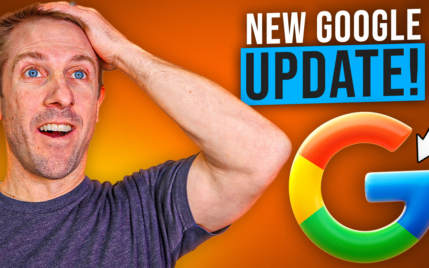Master Your SaaS Marketing Strategy with These 10 Steps to Success

When you buy something through one of the links on our site, we may earn an affiliate commission.
Mastering your SaaS marketing strategy can unlock exponential growth and success in today's competitive digital landscape. Like a well-conducted orchestra, every element of your SaaS marketing strategy should harmonize, creating a symphony that resonates with your target audience.
And while traditional marketing principles apply to businesses across the board, there are a few special considerations for SaaS companies. Additional concerns, such as customer lifetime value, tech stack integration, and customer retention rates, are unique to the SaaS industry.
So, let's walk through the 10 most important marketing touchpoints that will help you master your SaaS marketing strategy and achieve long-term success.
Contents
- 10 Keys For Your SaaS Marketing Strategy
- 1. Master the Fundamentals of a SaaS Marketing Strategy
- 2. Identify Your Precise Target Audience for Effective SaaS Marketing
- 3. Optimize Web Copy to Boost Your SaaS Success
- 4. Integrate SEO into Your SaaS Marketing Strategy
- 5. Leverage Social Media for Amplified Marketing Results
- 6. Incorporate Email Marketing into Your SaaS Strategy
- 7. Harness Influencer Marketing to Transform Your SaaS Venture
- 8. Apply A/B Testing to Refine Your SaaS Marketing Approach
- 9. Use Webinars and Virtual Events for Enhanced SaaS Outreach
- 10. Monitor Essential Metrics to Track Your SaaS Marketing Success
- The Bottom Line: Master Your SaaS Marketing Strategy
10 Keys For Your SaaS Marketing Strategy
When developing your SaaS software, it's easy to over-prioritize the product and under-prioritize marketing. However, having a strong SaaS marketing strategy is crucial for several reasons:
- Builds brand awareness: It's important to stand out from the crowd. A well-executed marketing strategy will help create brand recognition and differentiate your company from competitors.
- Generates leads and conversions: A strong marketing strategy will attract potential customers and guide them through the sales funnel.
- Increases customer retention: In a subscription-based model, retaining customers is key. A solid marketing strategy can help keep existing customers engaged and satisfied, reducing churn rates.
- Maximizes ROI: By targeting the right audience and utilizing effective marketing tactics, you can get the most out of your budget and see a higher return on investment.
A SaaS marketing strategy bridges the gap between your product and your target audience, which leads to increased growth and profitability.
And below is a step-by-step guide you can follow!
1. Master the Fundamentals of a SaaS Marketing Strategy

The best SaaS marketing campaigns start with a diligent and focused period of learning. The truth is that many entrepreneurs aren't equipped with the necessary marketing skills to kick off a successful SaaS venture (and we also have a list of great micro SaaS ideas).
So, take time to learn the fundamentals. Dive into the best marketing books for beginners to understand key marketing principles. Books also provide plenty of use-case examples that help you frame how these concepts can work in your specific industry.
From there, you can dive into more specialized resources. For instance, niche-specific podcasts, blogs, and courses are excellent ways to get in-depth knowledge about specific marketing strategies for SaaS companies.
Finally, read real-life stories from those who have succeeded with the best SaaS marketing strategies out there. We even have a few powerful examples to share with you on Niche Pursuits:
- How Noah Bragg built a SaaS in public and sold it for $300K after only 2.5 years
- Why Laura Roeder started Paperbell: Even though Meet Edgaris still a 7-figure SaaS business
- How Adam Preiser went from 124,000 YouTube subscribers to a 7 figure SAAS business
These spotlights show how there are several different paths toward an effective SaaS marketing plan.
And always remember - creative thinking, patience, and a willingness to take risks are key ingredients for success in any venture.
2. Identify Your Precise Target Audience for Effective SaaS Marketing

Targeting the right audience is pivotal for SaaS marketing success. Here are specific examples illustrating how to hone in on your ideal SaaS customers:
- Profile Your Ideal SaaS Customer: For instance, a cloud-based accounting software might target small business owners, emphasizing ease of use and affordability, while an enterprise-level CRM tool might focus on large corporations, highlighting scalability and integration capabilities.
- Evaluate Customer Needs and Pain Points: A project management tool should address the pain points of team collaboration and efficiency for project managers. A health-tech SaaS product might focus on the needs of healthcare providers for seamless patient data management.
- Segment Your Audience: A productivity app might distinguish between individual freelancers (potential customers) and small business teams (existing customers), tailoring its customer acquisition strategies and retention efforts accordingly.
- Monitor Customer Journey Stages: An e-commerce platform SaaS might craft different messages for new visitors discovering its platform versus long-term users looking for advanced features.
- Assess Customer Feedback: A fitness app SaaS company can refine its target audience by analyzing feedback from current users and adapting its marketing to focus more on personal trainers or fitness enthusiasts based on the insights.
By applying these steps in your SaaS marketing strategy, you can reach and engage the right audience more effectively - leading to better customer acquisition, retention, and a strong foundation for customer loyalty.
3. Optimize Web Copy to Boost Your SaaS Success

Enhancing your SaaS success calls for engaging, strategic copy marketing. Copywriting is the art of using words to persuade a reader to take action, and it's a crucial component of any SaaS marketing strategy.
Here are a few realms of your SaaS business where engaging copy can catch the attention of potential customers:
- Landing Page Impact: Your landing page is the gateway to your SaaS product. It should compellingly communicate your value proposition, appealing directly to the needs and interests of your audience.
- Emails that Engage: Elevate your email campaigns from standard communications to captivating narratives. Craft each message to nurture leads and engage existing customers, guiding them through their journey with your brand.
- PPC Campaigns with Precision: Your copy must be sharp and effective in pay-per-click advertising. Aim to capture organic traffic and convert clicks into meaningful engagement, thereby boosting your monthly recurring revenue.
- Master Social Media Marketing: Social media can be a powerful tool to spread the message about your company's value without pricey ads.
Well-crafted copy is a cornerstone of a successful SaaS marketing strategy. It's about striking the right balance between creativity and professionalism to resonate with your target audience.
Consider partnering with a copywriting agency like Content Refined or find a writer for hire in your specific niche on WriterAccess for an expert's touch. These options can provide finely-tuned copy that aligns with your marketing goals, helping your SaaS product stand out in a competitive market.
For those managing tight budgets, the popular AI tool Jasper offers a versatile range of copywriting templates which can be vital for enhancing your marketing messages across various platforms.
4. Integrate SEO into Your SaaS Marketing Strategy

Imagine a SaaS company specializing in project management software. Integrating SEO into their marketing strategy can significantly boost their online presence.
For example - here's how you could apply SEO effectively for a SaaS project management tool:
- Keyword Optimization: Identify longtail keywords like "efficient project management software" or "collaborative team platform" and incorporate them into your content marketing strategy to ensure you can appear in relevant search queries.
- Quality Content Creation: Produce insightful blog posts about these topics, how-to guides, and case studies related to project management, again - embedding your target keywords in the related posts (using a tool like Surfer to know the exact words). This not only improves SEO rankings. It also establishes them as industry experts.
- Content Updates: Regularly update your blog with the latest project management trends and tips to keep content fresh and engaging and encourage repeat visits from readers, leading to higher search engine rankings.
- Use SEO Tools: Use tools like SEMrush or KeySearch for keyword research or use done-for-you content services like Content Refined to help track keyword rankings and adjust your strategy accordingly. And if you choose to outsource, be sure to check out the tips on what to look for in an SEO company to get started.
Through this strategic approach to SaaS content marketing, companies increase visibility, attract more potential customers, and strengthen their position as leaders in the industry.
5. Leverage Social Media for Amplified Marketing Results
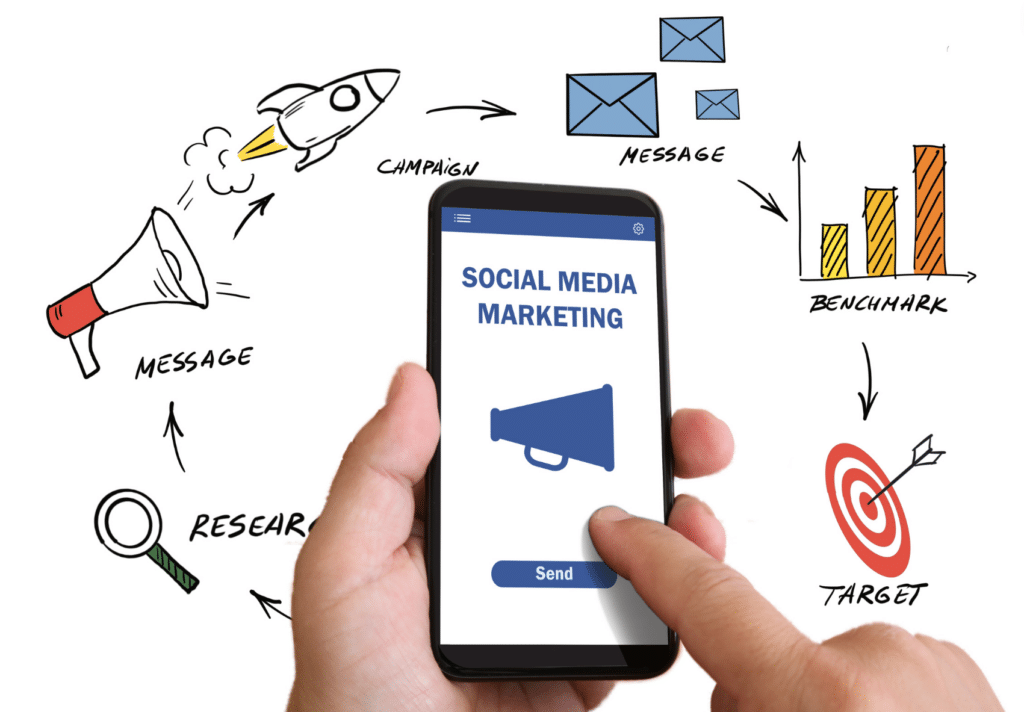
Social media is a powerhouse for SaaS marketing, offering unique opportunities to connect with your target market and boost your overall strategy. Here's how to make the most of it:
- Choose the Right Platforms: Identify which social media platforms your target market frequents. For B2B SaaS businesses, LinkedIn and Twitter might be key. B2C might find more traction on Instagram or Facebook.
- Engage in Referral Marketing: Use social media for your referral program. Encourage existing customers to share their experiences to attract potential paying customers.
- Collaborate with Your Marketing Team: Ensure your SaaS marketing team tailors content for each platform, integrating search engine optimization (SEO) practices where applicable.
- Blend Traditional and SaaS Marketing Techniques: Use a mix of traditional marketing methods and innovative SaaS marketing techniques. For instance, share customer testimonials alongside details about SaaS pricing and product features.
- Track and Optimize Campaigns: Monitor the performance of your marketing campaigns on social media using a tool like Social Bee. Use insights to refine strategies and improve engagement with your SaaS product.
By strategically leveraging social media, SaaS marketers can significantly enhance their reach, engage more effectively with their audience, and drive conversions.
6. Incorporate Email Marketing into Your SaaS Strategy
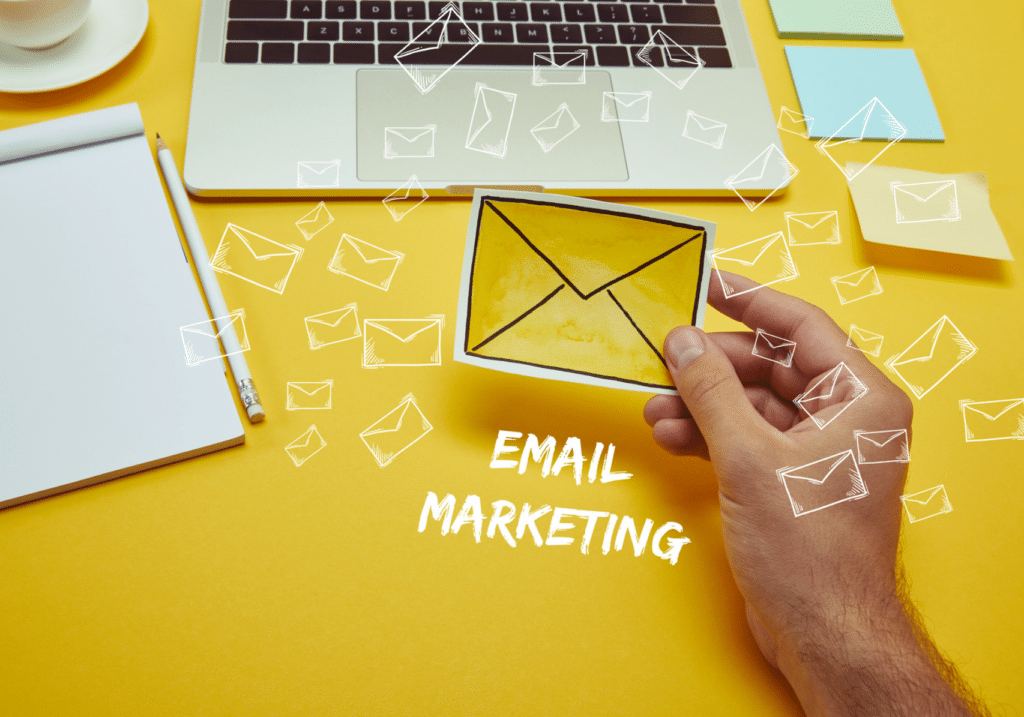
Email marketing remains a cornerstone in a SaaS company's arsenal, blending traditional marketing techniques with modern digital strategies.
Here's how to effectively use email marketing in your SaaS strategy:
- Highlight Your Value Proposition: Use email campaigns to clearly articulate your SaaS product's unique value proposition. This helps you stand out and resonate with your target audience to keep them engaged with your brand.
- Focus on Customer Success and Experience: Tailor your emails to enhance customer experience and success. Provide useful content, updates, and support that help retain customers and reinforce their decision to choose your service.
- Optimize for Customer Acquisition Cost: Efficient email marketing can reduce customer acquisition costs by nurturing qualified leads through targeted messaging and calls to action.
- Leverage for Referral Programs: Use email as a tool to promote your SaaS referral program, encouraging existing customers to refer others, thereby expanding your customer base cost-effectively.
- Align with Your SaaS Business Model: Ensure that your email marketing strategy is in sync with your overall SaaS business model, focusing on long-term customer relationships and recurring revenue.
Smaller teams can enlist the help of email automation tools like Aweber or ActiveCampaign to streamline their campaigns. Larger businesses can benefit from enterprise email marketing solutions.
7. Harness Influencer Marketing to Transform Your SaaS Venture
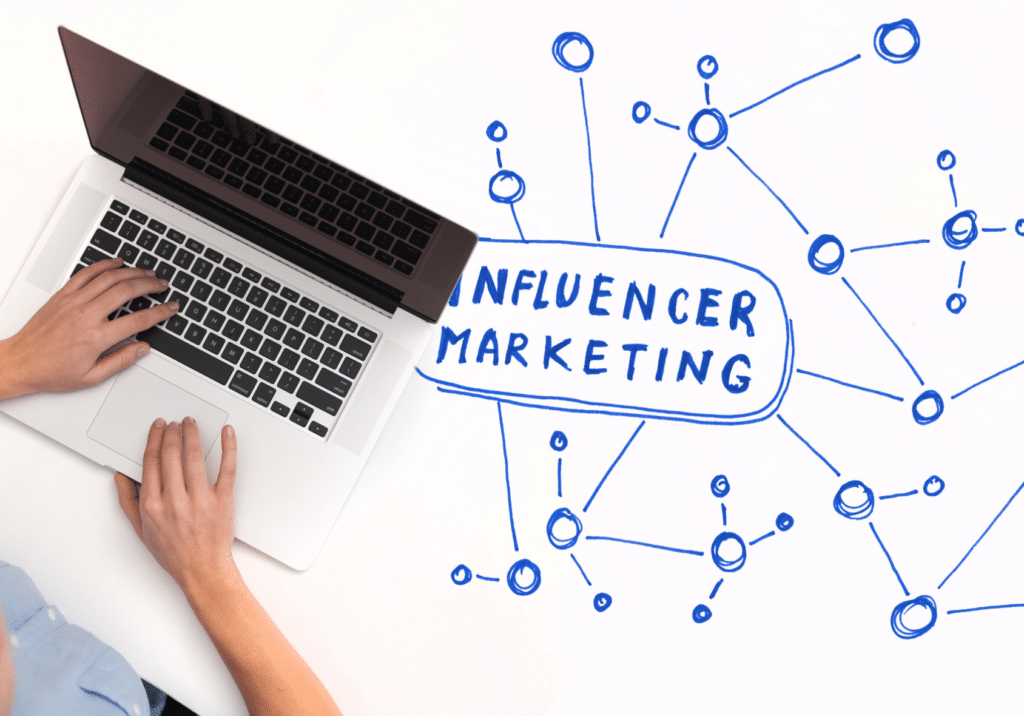
SaaS companies need to build social proof by putting service-based software into the hands of people who can test and appreciate its value. This SaaS marketing strategy takes your products to the masses while providing valuable user experience data that can be used to enhance your offerings.
Here's how SaaS companies can get started in the profitable world of influencer marketing:
- Establish Your Goals: Identify the objectives of your influencer marketing campaign. Common goals include product testing, increasing brand awareness, generating leads, and driving conversions.
- Find the Right Influencers: Look for influencers with a significantly engaged following of your target audience. They should be active on relevant social media platforms and genuinely interested in your SaaS product.
- Utilize Influencer Content: Ask influencers to create content showcasing how they use your SaaS product, highlighting its features and benefits. This helps build credibility with their audience and encourages them to try it out themselves.
- Track Performance: Use tools like Google Analytics or influencer marketing platforms to track the performance of your campaigns. This data can help optimize future influencer partnerships for maximum impact.
A tool like Ninja Outreach can help you identify and connect with relevant influencers for your SaaS marketing. This is especially helpful for beginners and SaaS companies with limited time for influencer research.
8. Apply A/B Testing to Refine Your SaaS Marketing Approach
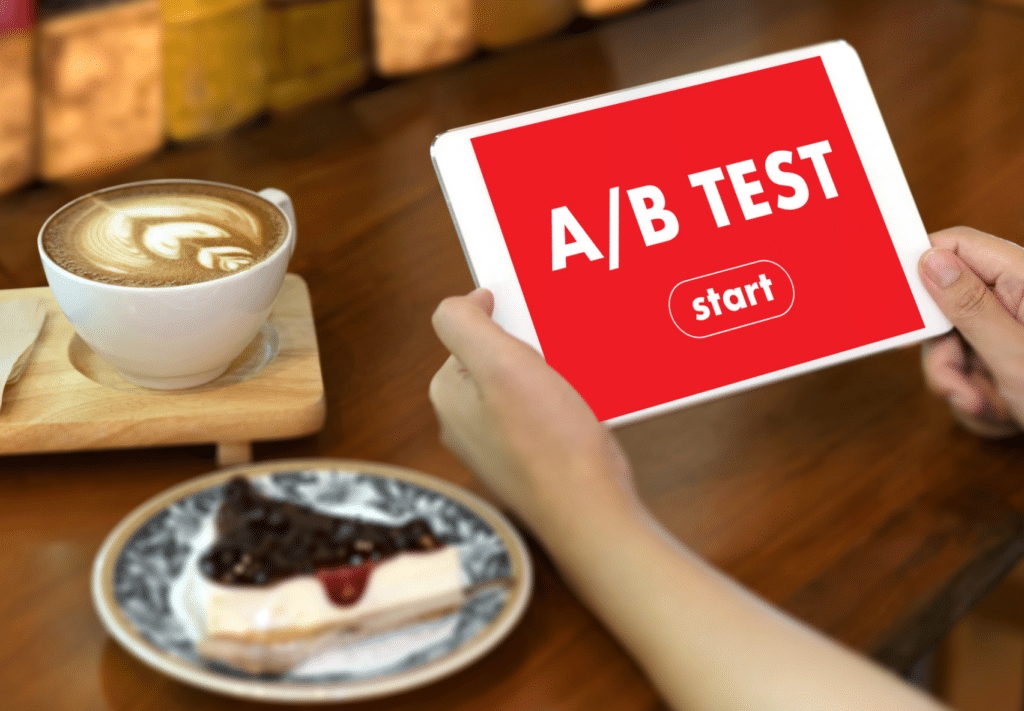
A/B testing is an invaluable part of a SaaS marketer's toolkit as you compare two versions of a webpage or app against each other to determine which one performs better. After all, your preferences may be surprisingly different from your target audience.
Here's a relatively simple, tailored approach for SaaS marketing:
- Experiment with Key Elements: In your SaaS marketing plan, apply A/B testing to elements like email subject lines, website landing page layouts, or CTA (Call-to-Action) phrases. This approach helps you identify what captures the attention of potential customers.
- Decode the Customer Journey: Utilize A/B testing to delve into the nuances of the customer journey. By studying how changes in marketing elements impact user interactions and decisions, you can gain valuable insights into customer preferences and behaviors.
- SEO Strategy Refinement: Employ A/B testing to fine-tune your search engine optimization tactics. Experiment with different content styles or keyword integrations to discover what drives better search engine rankings and attracts more targeted traffic.
- Polish Your Marketing Messages: Continually adapt and improve your marketing communications based on the findings from your A/B tests (check out the differences between marketing vs communications here).
Testing is essential in your SaaS marketing plan because it helps to identify what resonates best with your audience, fine-tune campaigns, and ensure that your marketing efforts are aligned with customer needs.
9. Use Webinars and Virtual Events for Enhanced SaaS Outreach

As a SaaS entrepreneur, integrating webinars and virtual events into your marketing mix offers substantial benefits:
- Showcase Your SaaS Product: These platforms are perfect for live demos, making complex SaaS functionalities understandable and appealing to prospective customers.
- Industry Collaboration: Partner with fellow SaaS influencers for joint sessions, merging audiences and expertise, a smart move in B2B SaaS marketing.
- Lead Generation and Customer Education: Use these events for cost-effective lead generation while educating your audience about SaaS trends, enhancing both your marketing strategy and customer experience.
- Complement Other Marketing Channels: Seamlessly tie these events into your overall SaaS marketing efforts, including content marketing, social media outreach, and email follow-ups, to maximize reach and impact.
This approach positions your SaaS business as an industry authority and drives engagement and growth, making it a crucial element of an effective SaaS marketing strategy.
10. Monitor Essential Metrics to Track Your SaaS Marketing Success

For SaaS professionals, certain metrics are particularly crucial in measuring marketing success.
And understanding key marketing metrics is key:
- Customer Acquisition Cost (CAC): This measures the cost of acquiring a new customer. Keeping CAC low relative to the customer's lifetime value is essential for SaaS profitability.
- Monthly Recurring Revenue (MRR): A critical metric for any SaaS business model, MRR tracks the predictable revenue generated each month, which is crucial for evaluating financial health and growth.
- Customer Lifetime Value (CLV): CLV estimates the total revenue a business can expect from a single customer account. Higher CLV indicates more value generated per customer.
- Churn Rate: This measures the rate customers stop doing business with you. A lower churn rate means better customer retention, which is obviously key for SaaS sustainability.
- Lead Conversion Rate: Tracks how effectively your marketing efforts are at turning leads into paying customers, a vital gauge of campaign effectiveness.
A common example: a SaaS company noticing a high churn rate might investigate and improve aspects of customer service or product features. This may lead to better retention and ultimately, more stable revenue.
Or, a low lead conversion rate might indicate that marketing campaigns are reaching the wrong audience or not effectively conveying the benefits of their SaaS product. A savvy marketer could then tweak targeting or messaging to boost conversions and track improvements via lead conversion rate.
The Bottom Line: Master Your SaaS Marketing Strategy
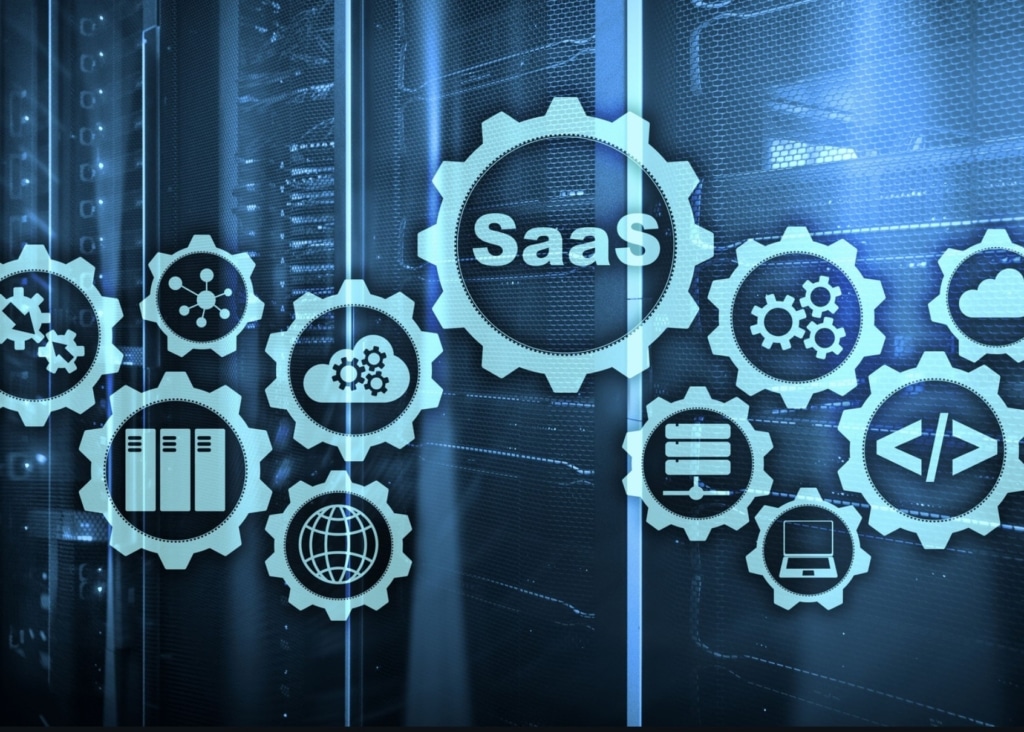
Mastering your SaaS marketing strategy is key for growth.
Know your audience, create engaging content, and use all channels - social media, email, PPC.
Keep an eye on metrics like customer acquisition and organic traffic to guide your budget. Invest in SaaS marketing agencies when you're ready to scale.
Whether you're B2B or B2C, a well-aligned sales team can turbocharge your growth strategy. And remember that every interaction is an opportunity to shine in the SaaS industry.
Want to learn step-by-step how I built my Niche Site Empire up to a full-time income?
Yes! I Love to Learn
Learn How I Built My Niche Site Empire to a Full-time Income
- How to Pick the Right Keywords at the START, and avoid the losers
- How to Scale and Outsource 90% of the Work, Allowing Your Empire to GROW Without You
- How to Build a Site That Gets REAL TRAFFIC FROM GOOGLE (every. single. day.)
- Subscribe to the Niche Pursuits Newsletter delivered with value 3X per week
My top recommendations













